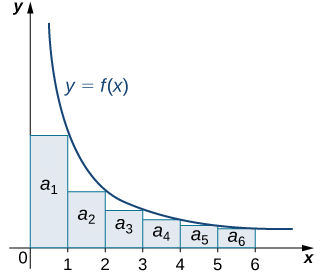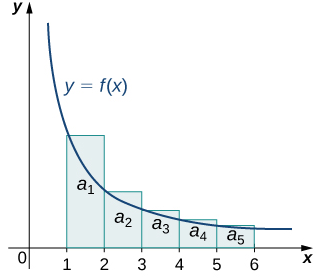
Home
Integration by Parts
Integration by PartsExamples
Integration by Parts with a definite integral
Going in Circles
Tricks of the Trade
Integrals of Trig Functions
Antiderivatives of Basic Trigonometric FunctionsProduct of Sines and Cosines (mixed even and odd powers or only odd powers)
Product of Sines and Cosines (only even powers)
Product of Secants and Tangents
Other Cases
Trig Substitutions
How Trig Substitution WorksSummary of trig substitution options
Examples
Completing the Square
Partial Fractions
Introduction to Partial FractionsLinear Factors
Irreducible Quadratic Factors
Improper Rational Functions and Long Division
Summary
Strategies of Integration
SubstitutionIntegration by Parts
Trig Integrals
Trig Substitutions
Partial Fractions
Improper Integrals
Type 1 - Improper Integrals with Infinite Intervals of IntegrationType 2 - Improper Integrals with Discontinuous Integrands
Comparison Tests for Convergence
Modeling with Differential Equations
IntroductionSeparable Equations
A Second Order Problem
Euler's Method and Direction Fields
Euler's Method (follow your nose)Direction Fields
Euler's method revisited
Separable Equations
The Simplest Differential EquationsSeparable differential equations
Mixing and Dilution
Models of Growth
Exponential Growth and DecayThe Zombie Apocalypse (Logistic Growth)
Linear Equations
Linear ODEs: Working an ExampleThe Solution in General
Saving for Retirement
Parametrized Curves
Three kinds of functions, three kinds of curvesThe Cycloid
Visualizing Parametrized Curves
Tracing Circles and Ellipses
Lissajous Figures
Calculus with Parametrized Curves
Video: Slope and AreaVideo: Arclength and Surface Area
Summary and Simplifications
Higher Derivatives
Polar Coordinates
Definitions of Polar CoordinatesGraphing polar functions
Video: Computing Slopes of Tangent Lines
Areas and Lengths of Polar Curves
Area Inside a Polar CurveArea Between Polar Curves
Arc Length of Polar Curves
Conic sections
Slicing a ConeEllipses
Hyperbolas
Parabolas and Directrices
Shifting the Center by Completing the Square
Conic Sections in Polar Coordinates
Foci and DirectricesVisualizing Eccentricity
Astronomy and Equations in Polar Coordinates
Infinite Sequences
Approximate Versus Exact AnswersExamples of Infinite Sequences
Limit Laws for Sequences
Theorems for and Examples of Computing Limits of Sequences
Monotonic Covergence
Infinite Series
IntroductionGeometric Series
Limit Laws for Series
Test for Divergence and Other Theorems
Telescoping Sums
Integral Test
Preview of Coming AttractionsThe Integral Test
Estimates for the Value of the Series
Comparison Tests
The Basic Comparison TestThe Limit Comparison Test
Convergence of Series with Negative Terms
Introduction, Alternating Series,and the AS TestAbsolute Convergence
Rearrangements
The Ratio and Root Tests
The Ratio TestThe Root Test
Examples
Strategies for testing Series
Strategy to Test Series and a Review of TestsExamples, Part 1
Examples, Part 2
Power Series
Radius and Interval of ConvergenceFinding the Interval of Convergence
Power Series Centered at $x=a$
Representing Functions as Power Series
Functions as Power SeriesDerivatives and Integrals of Power Series
Applications and Examples
Taylor and Maclaurin Series
The Formula for Taylor SeriesTaylor Series for Common Functions
Adding, Multiplying, and Dividing Power Series
Miscellaneous Useful Facts
Applications of Taylor Polynomials
Taylor PolynomialsWhen Functions Are Equal to Their Taylor Series
When a Function Does Not Equal Its Taylor Series
Other Uses of Taylor Polynomials
Functions of 2 and 3 variables
Functions of several variablesLimits and continuity
Partial Derivatives
One variable at a time (yet again)Definitions and Examples
An Example from DNA
Geometry of partial derivatives
Higher Derivatives
Differentials and Taylor Expansions
Differentiability and the Chain Rule
DifferentiabilityThe First Case of the Chain Rule
Chain Rule, General Case
Video: Worked problems
Multiple Integrals
General Setup and Review of 1D IntegralsWhat is a Double Integral?
Volumes as Double Integrals
Iterated Integrals over Rectangles
How To Compute Iterated IntegralsExamples of Iterated Integrals
Fubini's Theorem
Summary and an Important Example
Double Integrals over General Regions
Type I and Type II regionsExamples 1-4
Examples 5-7
Swapping the Order of Integration
Area and Volume Revisited
Double integrals in polar coordinates
dA = r dr (d theta)Examples
Multiple integrals in physics
Double integrals in physicsTriple integrals in physics
Integrals in Probability and Statistics
Single integrals in probabilityDouble integrals in probability
Change of Variables
Review: Change of variables in 1 dimensionMappings in 2 dimensions
Jacobians
Examples
Bonus: Cylindrical and spherical coordinates
The Integral Test
| Integral
Test: If $f$ is a continuous, positive
and decreasing function where $f(n)=a_n$ on the
interval $[1,\infty)$, then the improper integral $\displaystyle\int_1^\infty f(x)\, dx$ and the infinite series $\displaystyle\sum_{n=1}^\infty a_n$ either both converge or both diverge. |
Picture infinitely many rectangles of width 1 and height $a_n$, so the area of the $n^{th}$ rectangle is $a_n$. Then the series $\displaystyle\sum_{n=1}^\infty a_n$ is equal to the sum of the areas of these infinitely many rectangles. See the graphic examples below.
Consider this graph. We see that the value of the series from $a_2$ on is less than the area under the curve $f$ from 1 to infinity; i.e. $\displaystyle\sum_{n=2}^\infty a_n<\int_1^\infty f(x)\,dx$. If this integral converges to some finite value $C$, then by using this inequality and doing a little work, we get $\displaystyle\sum_{n=1}^\infty a_n= a_1+\sum_{n=2}^\infty a_n<a_1+\int_1^\infty f(x)\,dx=a_1+C<\infty$, so the series is finite, and thus the series converges. archive.cnx.org
|
 |
Now consider this graph. We see that the sum of the same series beginning with $a_1$ is larger than the area under the same curve $f$ from 1 to infinity; i.e. $\displaystyle\int_1^\infty f(x)\,dx<\sum_{n=1}^\infty a_n$. If this integral diverges, then because of our constraints on $f$ it diverges to infinity. Since the area under $f$ is infinite, then the sum of the areas of the rectangles must also be infinite, i.e. $\displaystyle\sum_{n=1}^\infty a_n$ is infinite, and thus the series diverges. We see that if the integral diverges, so does the series. archive.cnx.org
|
 |
From our work with improper integrals, you may have seen that the improper integral
$\displaystyle\int_1^\infty\frac{1}{x^p}\,dx$
converges if $p>1$, and diverges if $p\le 1$.
By using the integral test, we therefore get our
$p$-series test, which is
extremely useful, especially when used to find comparable series
for the comparison tests.
| $\displaystyle{\sum_{n=1}^\infty \frac{1}{n^p}}$ converges if $p>1$ and diverges if $p \le 1$. |
Explanation and examples of the integral test, as well as determining the above integral of $\frac{1}{x^p}$ and the $p$-series test are included on the first video. The second video includes detail of the graphical information above.